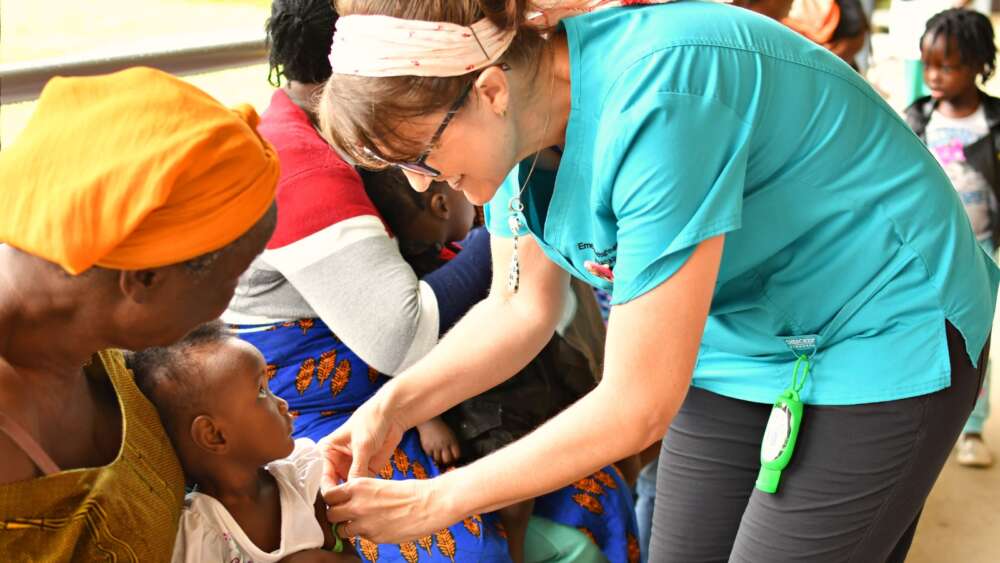Missionary Diary: hope in Liberia
After having served with Mission Aviation Fellowship (MAF) for four years in Arnhem Land and southern Africa when their children were young, Steven and Margot Biggs felt God’s call back to the mission field some years later. In 2019 they began serving with MAF again. This time they went to Liberia in West Africa, with Steven serving as a pilot and Margot utilising her extensive nursing experience to serve God.
In 2019, my husband and I moved from Brisbane to Liberia in West Africa. My husband is a pilot and we were serving with the Mission Aviation Fellowship in Liberia.
As a nurse, I was keen to use my nursing skills in a Third World context. So I soon started volunteering my time at the local mission hospital. It was incredibly challenging but also fulfilling. I have never seen so much preventable death before, but the Liberian people’s strength was inspiring.
By 2022, our fourth year in Liberia, I had some good relationships with the staff at the Mission Hospital. My closest friend was a local social worker, Annette. We worked together almost daily, helping needy cases at the hospital. I did a lot of fundraising for hospital fees and various dire needs in the hospital and community.
Time and again, Annette and I kept seeing young women and teenage girls who had no safe place to live. As we discharged these young ladies from the hospital, I wished they had a safe place to go. Many went back to the streets or violent domestic situations.
In February 2022, Annette and I met 16-year-old Princess, an orphan living unhappily with her grandfather. After she ran away from home to the capital city of Monrovia, she fell in love. Her boyfriend promised her the world, but when Princess became pregnant, he denied the pregnancy and left her.
Since Princess had no money to pay the $250 hospital bill, she was not allowed to leave the hospital.
Princess’ brief time of hope had vanished. Without money, she planned to give birth at home in the community. She was staying with a friend and her labour was long and arduous when her time came. After many hours, Princess’s friend saw she was in trouble and took her to the hospital. She knew it was a matter of life and death. Princess delivered a baby girl at the hospital by C-section, but sadly, the baby had died. Since Princess had no money to pay the $250 hospital bill, she was not allowed to leave the hospital. A month later, I was called in to help.
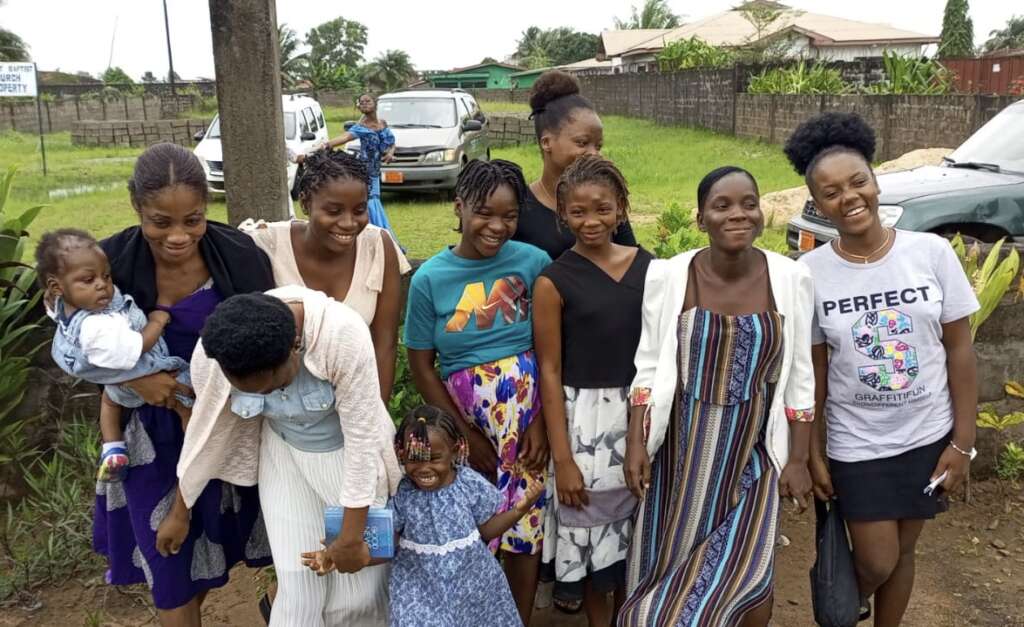
Girls at church
When I met Princess, she sat on the edge of her bed and sobbed in my arms. She had nothing and no one to help her, and she was grieving for the baby girl who had died. I raised the money to pay for her hospital stay, but where could I send her? There were no homes for women and certainly no welfare payments to support her. My heart broke as I prayed with her.
That night, I couldn’t sleep in my warm, comfy bed, wondering where Princess was spending the night. As I thought of the countless other women I had seen at the hospital with nowhere to go, women who lived in violent relationships, I decided someone needed to open a crisis women’s shelter.
Some come out of prostitution. Many arrive beaten and abused. Most have been raped.
The need in Liberia is unimaginable. It is one of the world’s poorest countries and has no welfare system.
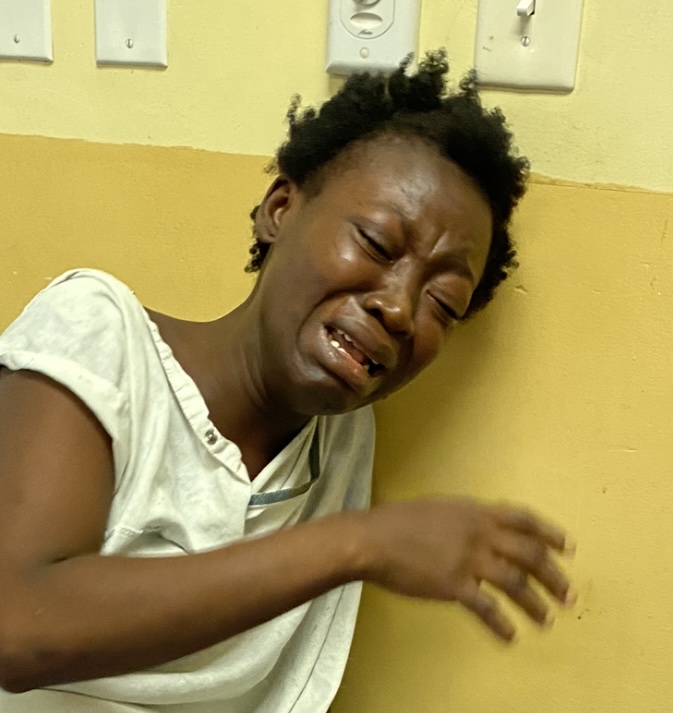
Fatu on first meeting Margot
We opened Home Of Hope Liberia in May 2022 and are now housing our fourth group of young ladies. We bring girls off the street and out of poverty. Many are pregnant and abandoned or with babies. Some come out of prostitution. Many arrive beaten and abused. Most have been raped (some statistics indicate three-quarters of Liberian women have been raped). Some have lost babies to starvation and disease. They are hungry, sick and depressed.
At Home Of Hope, we feed and clothe them, lead them through trauma healing classes and vocational training and give them lots of love. They also receive health care, including a hospital birth for those who are pregnant. This is important in a country where 1 per cent of women die in childbirth. (In Australia, the rate is 0.006 per cent.) Most importantly, we show them the love of the Lord and teach them about the Bible. All girls must attend church on Sundays, Bible study on Wednesdays, and daily devotions in the home.
Here are some success stories: Fatu came to us inconsolable with a diagnosis of ovarian cancer. We got her chemotherapy at the hospital and she is alive today! She is now back in the community, renting her own room and running a little market stall, earning her an income.
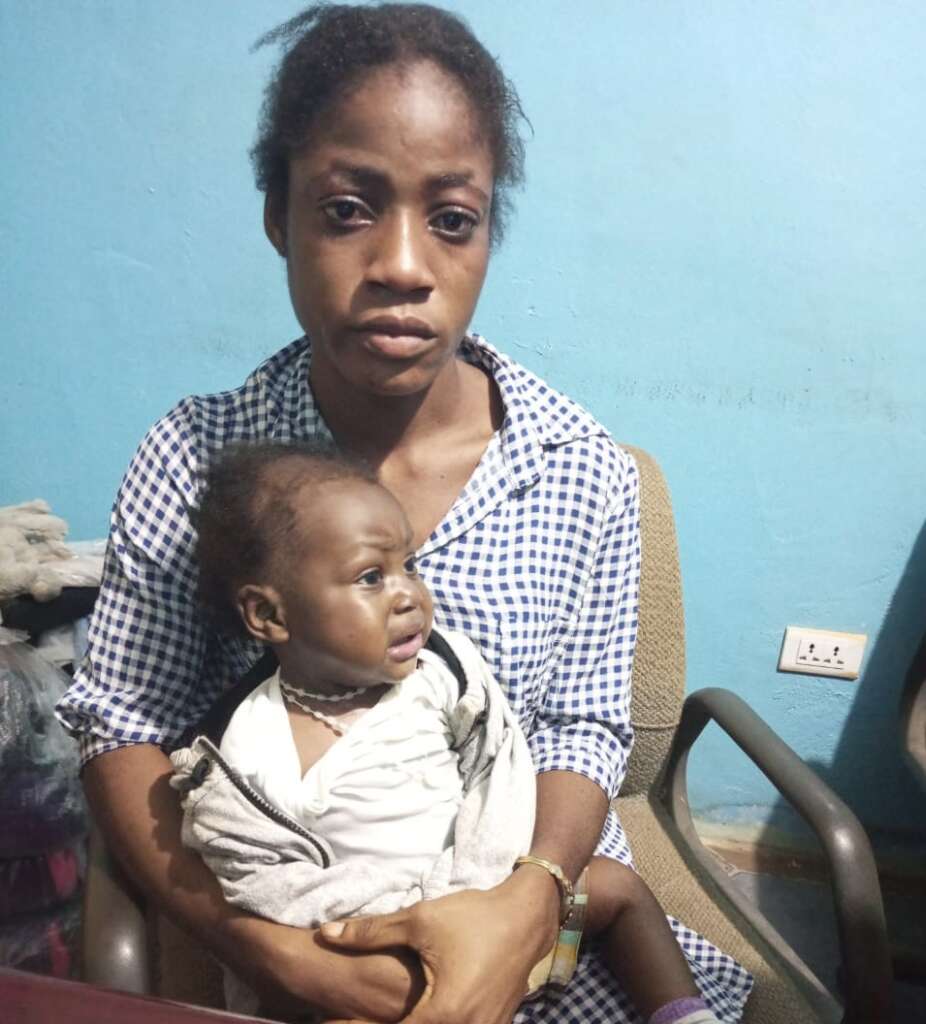
Rosetta and Terence
Rosetta lived in poverty with her twin baby boys, Terence and Terise, who were malnourished and sick. Tragically, Terise died. After their time at Home of Hope, Rosetta and Terence are thriving!
A few hours later, she tearfully returned to the police station and confessed he was her son.
Angeline and her baby, Emmanual, lived with an Aunt in deplorable poverty. When eight-month-old Emmanuel became sick, and with no money for treatment, she put Emmanuel on the side of the road in the hope that someone would take him to the police station. She watched from a distance. When she could bear his cries no longer, she collected him and took him to the police station, saying she had found him on the side of the road. However, a few hours later, she tearfully returned to the police station and confessed he was her son. They have now come to Home of Hope and after treatment at the clinic for a respiratory infection, they are blossoming!
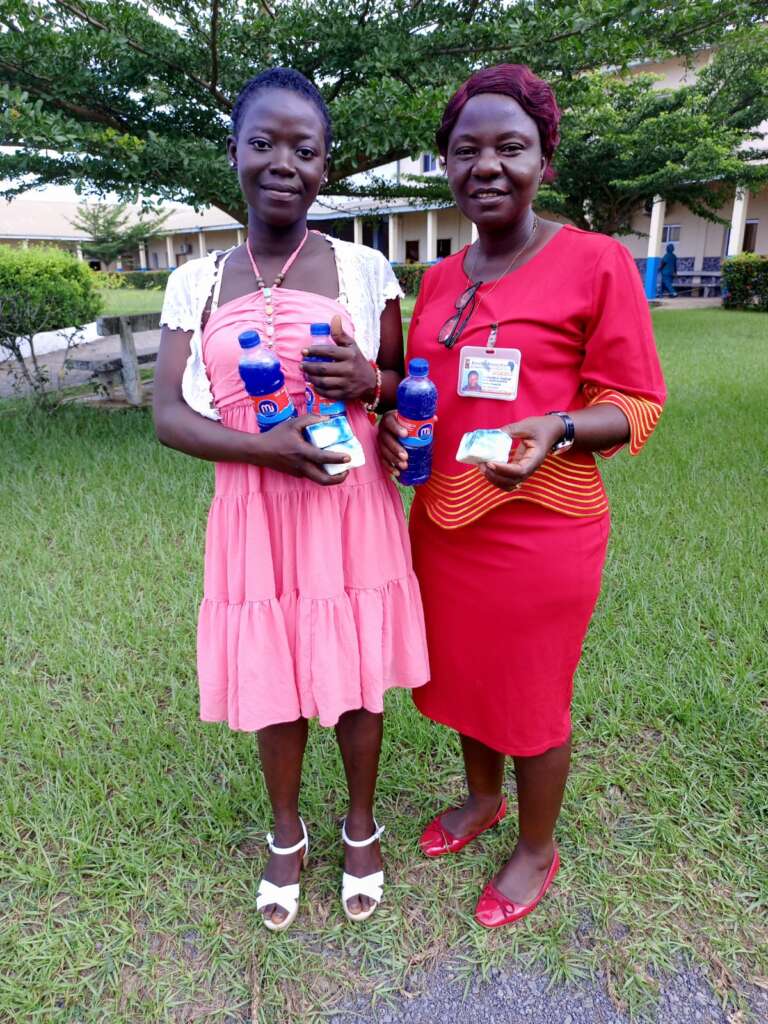
Fatu, left, and Annette with soap made at Home of Hope. Healthy and happy. Fatu is now selling the soap in her local market.
We house about 12 women per group and have nine staff members, including two directors, three female caretakers, three security guards and a vocational trainer. I am proud to employ these nine people in a country where work is hard to find!
Once the women have completed their vocational training and trauma healing classes (three to six months), they are given a package of basics, including a mattress, cooking pots, market supplies and enough money to rent a room for six months. We then keep in touch with the girls to ensure they earn money from their learned trade and survive.
Some of these young ladies would not be alive today if it were not for Home of Hope.
I am now living back in Australia and running Home Of Hope remotely. One of my primary duties is fundraising and we are looking for sponsors who will support us every month, to supply things like food and clothing, healthcare and education.
For more information, click here or find Home of Hope on Facebook.
Email This Story
Why not send this to a friend?
